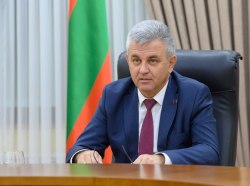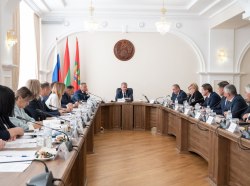Tiraspol, 21 January. /Novosti Pridnestrovya/. A dialogue between Pridnestrovie's authoriites and business community has livened up this year, said a deputy minister of economic development, Dmitry Boltrushko, on Radio 1.
According to him, this has been made possible through the action taken by the country's leadership to arrange a favourable environment for business development The deputy minister particularly mentioned a presidential decree «On implementation of the Security Council of the Pridnestrovian Moldavian Republic aimed to increasing macroeconomic stability and maintaining citizens' prosperity», which provides for the establishment of a crisis group under the government, which will include representatives of all branches of power and experts' community.
«Both the crisis group and the office of the business ombudsman (representing the business community) under the president will deal with accumulated problems countrywide. I think that all these steps will help in a short time to minimise administrative and technical pressure, considering that we have a limited choice of measures we can apply to help business under current circumstances," said Dmitry Boltrushko.
The deputy minister also noted that at the moment the business community is discussing candidates for the position of business ombudsman under the president. «The business community needs to choose a most unbiased and resolute person so that this position could not be used for lobbying," Boltrushko believes.
With regard to the difficulties both the crisis group and the ombudsman may face, the deputy minister mentioned in the first place economic disproportions.
«All decision must take macroeconomic stability into account: stable exchange rate, employment rate, performance of budget-making businesses and so on. It is necessary to level the economic disproportions we are facing now. At the same time, we will also have to reform the existing tax system or adopt a new one," underscored the deputy minister.
According to him, the crisis group is set to work out macroeconomic decisions based on which the government and the Supreme Council will be able to pursue a consolidated economic policy.








